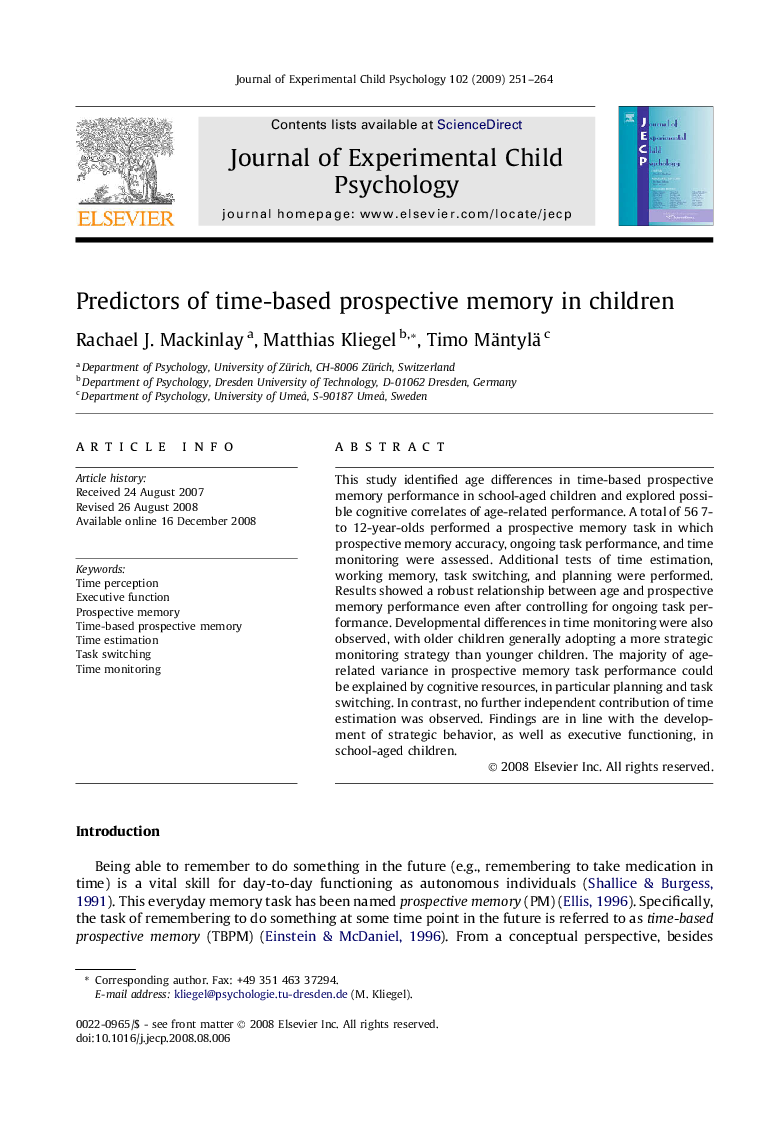| Article ID | Journal | Published Year | Pages | File Type |
|---|---|---|---|---|
| 918630 | Journal of Experimental Child Psychology | 2009 | 14 Pages |
This study identified age differences in time-based prospective memory performance in school-aged children and explored possible cognitive correlates of age-related performance. A total of 56 7- to 12-year-olds performed a prospective memory task in which prospective memory accuracy, ongoing task performance, and time monitoring were assessed. Additional tests of time estimation, working memory, task switching, and planning were performed. Results showed a robust relationship between age and prospective memory performance even after controlling for ongoing task performance. Developmental differences in time monitoring were also observed, with older children generally adopting a more strategic monitoring strategy than younger children. The majority of age-related variance in prospective memory task performance could be explained by cognitive resources, in particular planning and task switching. In contrast, no further independent contribution of time estimation was observed. Findings are in line with the development of strategic behavior, as well as executive functioning, in school-aged children.
